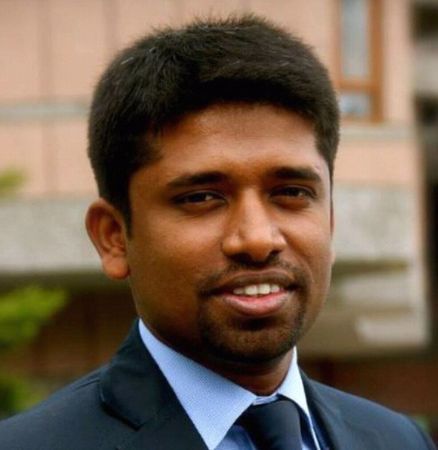The District Collector’s office in Aizawl—Mizoram’s capital—is a laboratory of sorts. The occupant of the office, Kannan Gopinathan, approaches problems with the curiosity and gusto of a fifth grader. Gopinathan, from Puthuppally in Kottayam, Kerala, joined the Birla Institute of Technology, Ranchi, after his studies at the IHRD in Puthuppally. The district collector solves most of the issues with the aid of technology—the app to warn about natural calamities, using smartphone to bring power failure to the notice of the authorities, and improving the condition in Aizawl district’s government-run schools.
Here's how Gopinathan did something “extra” for the government schools there, in his own words:
“I was invited to inaugurate a private school in Aizawl by the school’s manager. When I asked the manager whether there are any government-run schools there, the school manager replied, 'There are government-run schools, but nobody sends children to those schools.' This response shocked me,” says Gopinathan.

One day, I went to the government-run school located near that private school. Though I had visited many private schools after having taken charge as the District Collector, I had never visited a government-run school. I strongly felt that I must do something ‘extra’ for government schools as was being done in the private schools in order to improve the conditions in government schools.
The very next day, I called a meeting of officials of the Department of Education. At the meeting, it was decided that successful artistes, sportspersons, officers, businessmen and such persons should visit government schools once a month and interact with the pupils there. I wrote these deliberations like a story on Twitter, and, surprisingly, I received a large number of suggestions.
Then I wrote to eminent persons from various walks of life inviting them to visit that government school. They were told that we could not afford to pay them, and they have to reach the schools at their own expense and talk to the pupils. Our first guest was Chavimavi Changthe, a teacher who raised funds by selling milk.
We could notice the difference the very first day that Chavimavi interacted with the pupils. The classrooms and the surroundings were cleaned with the help of the locals. The classroom were adorned with charts and pictures. Everyone was happy when people came to know of the fact that the government school and its pupils were being taken care of.
With the visit of the state’s chief secretary, the conditions at the school got further boost. Many facilities, including supply of drinking water, were revived. It was almost like magic—most of these improvements were accomplished without spending any money at all.
We are trying to teach the pupils English with the cooperation of the Tata Trust. Since all government schools suffer from shortage of expert teachers, we are forming clusters, with each cluster comprising five teachers. We have a long way to go, and I am waiting for your valuable suggestions on Twitter.”







